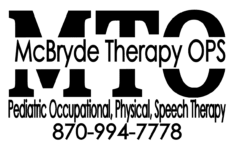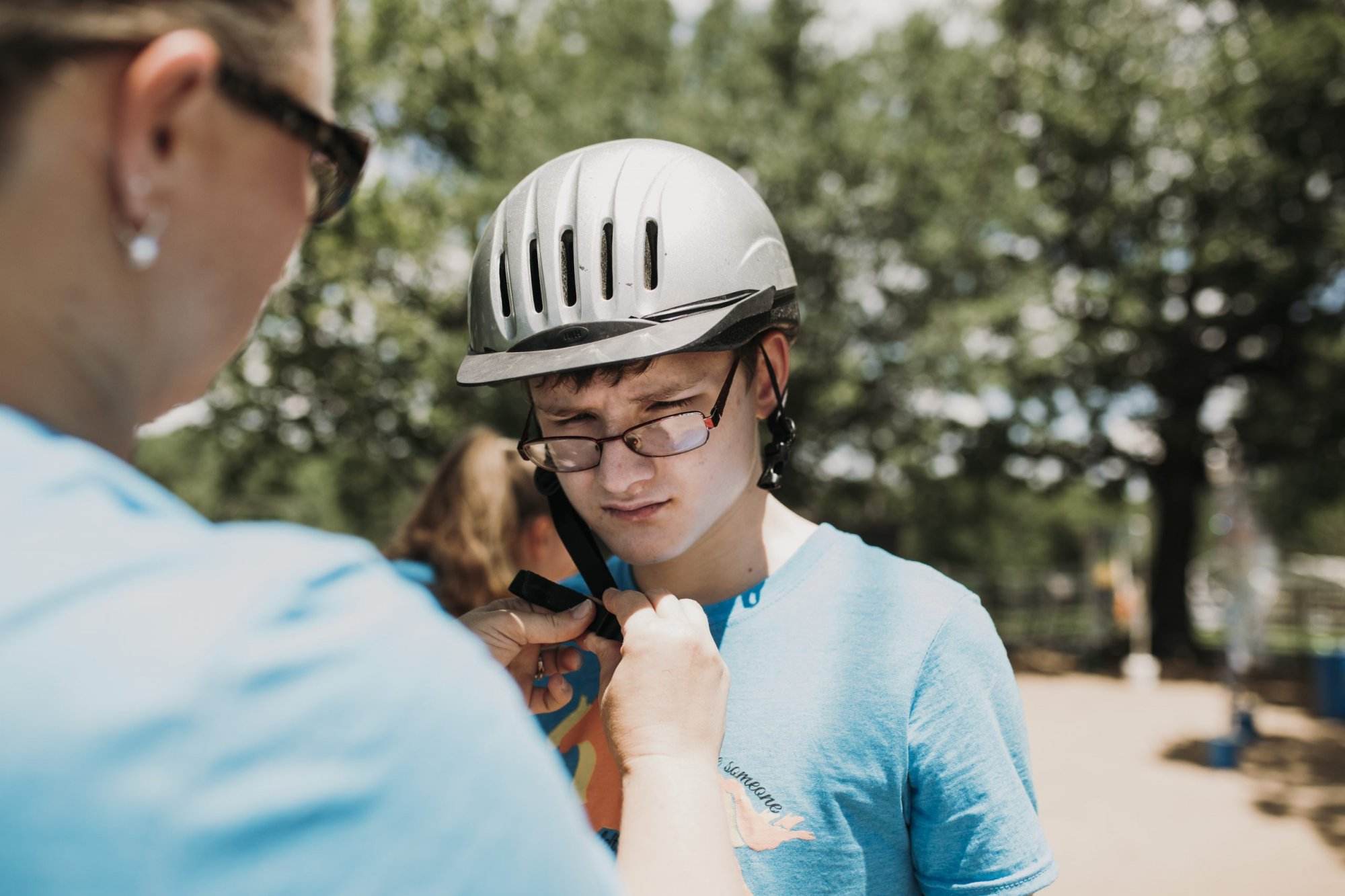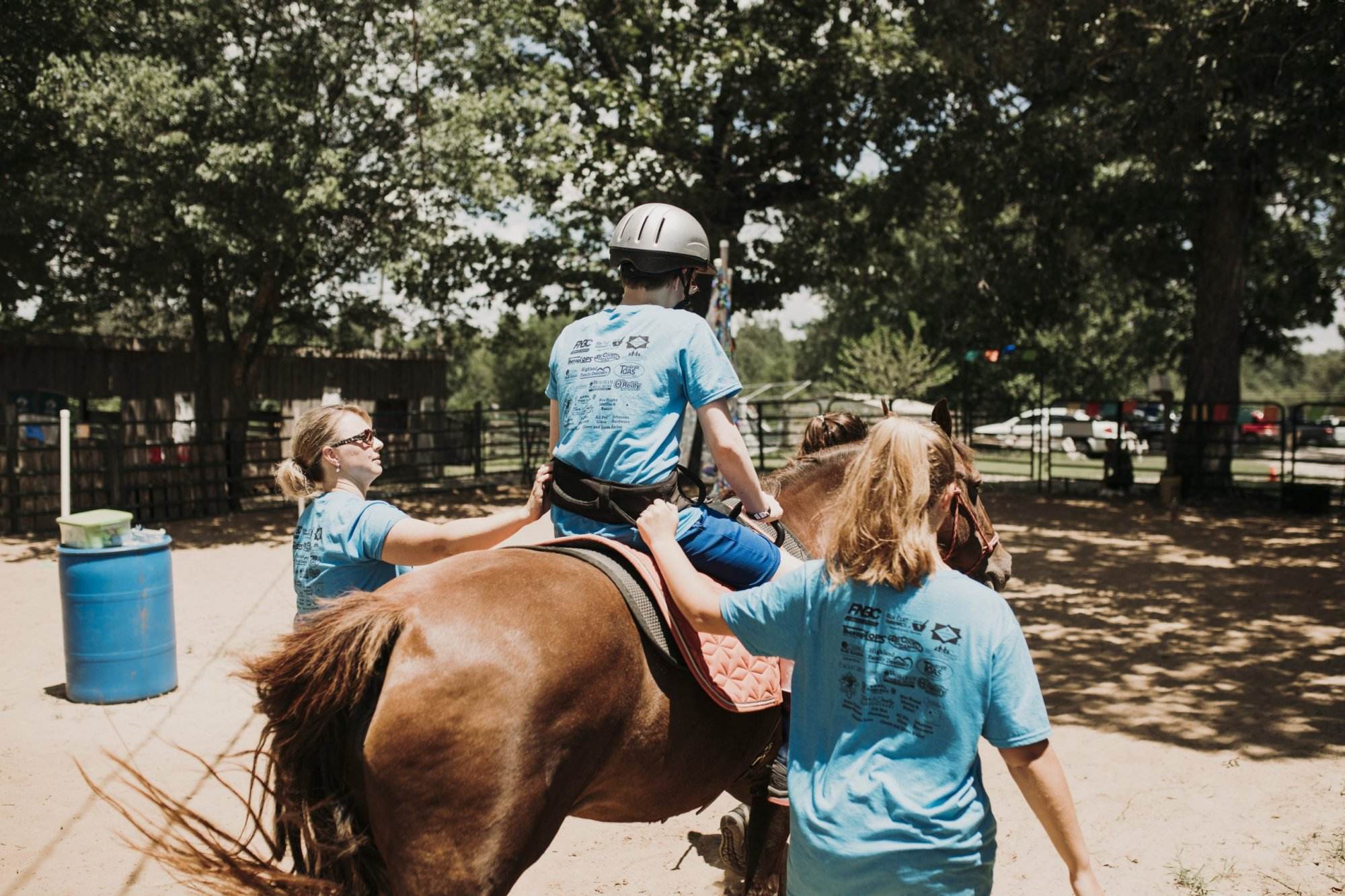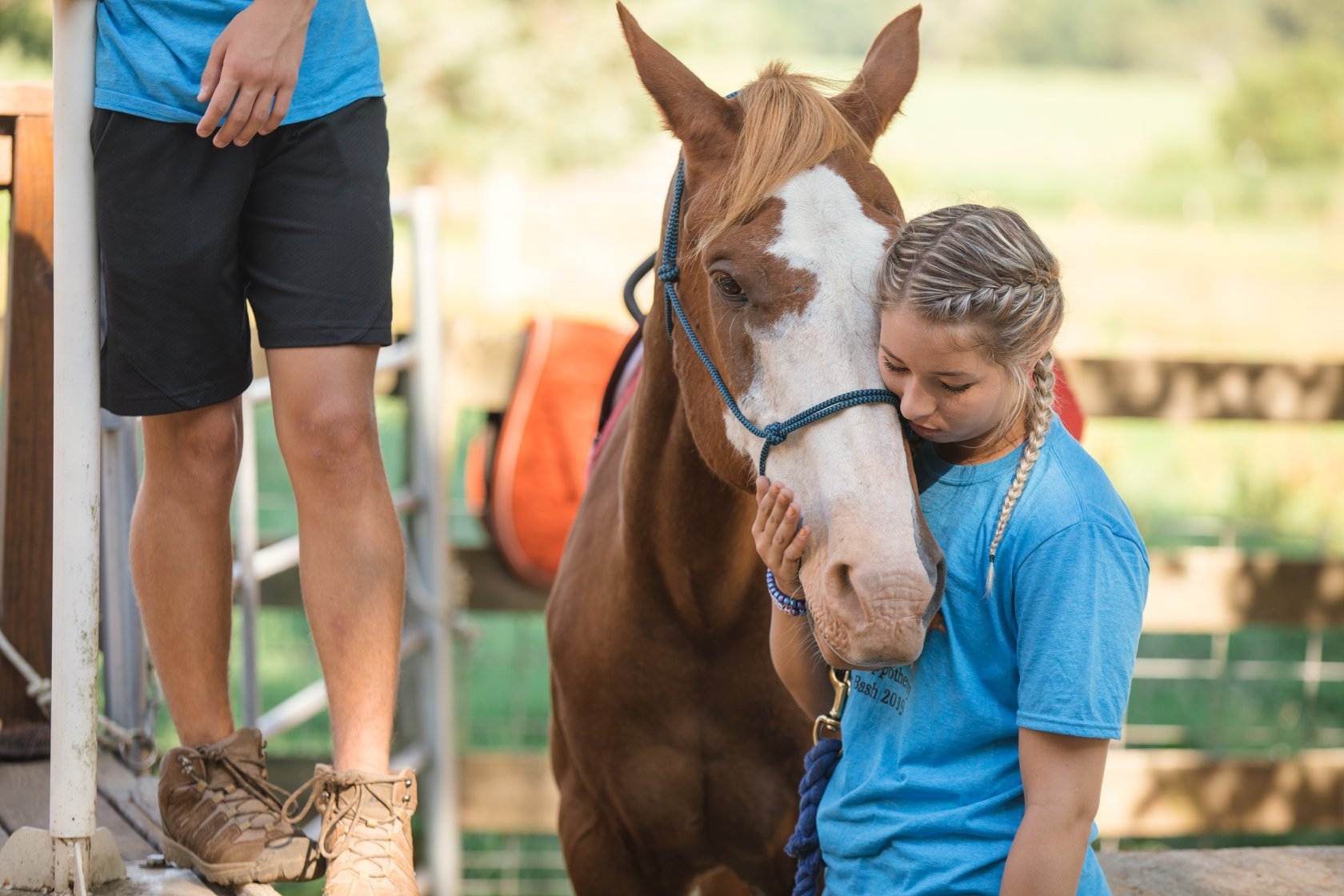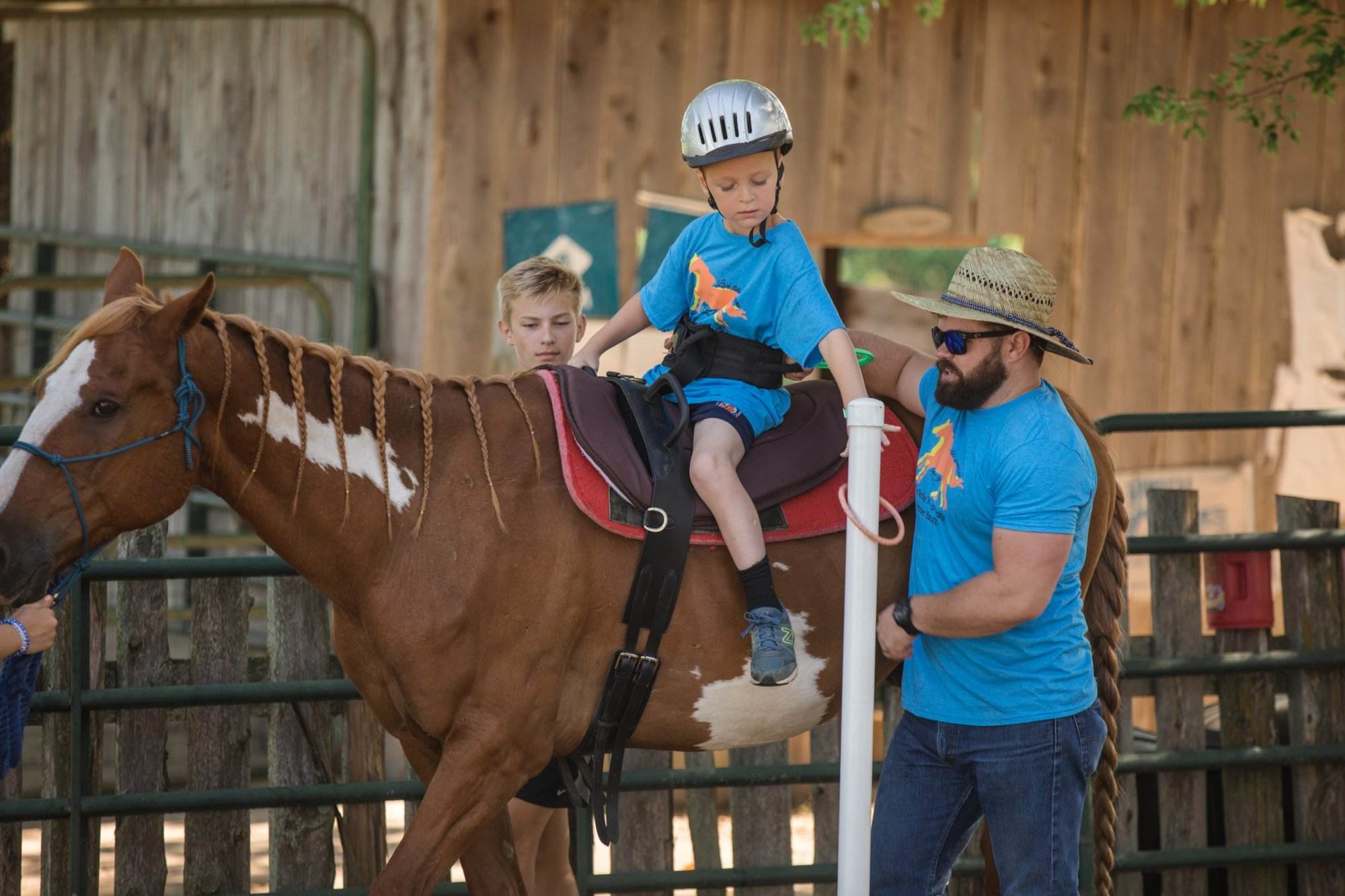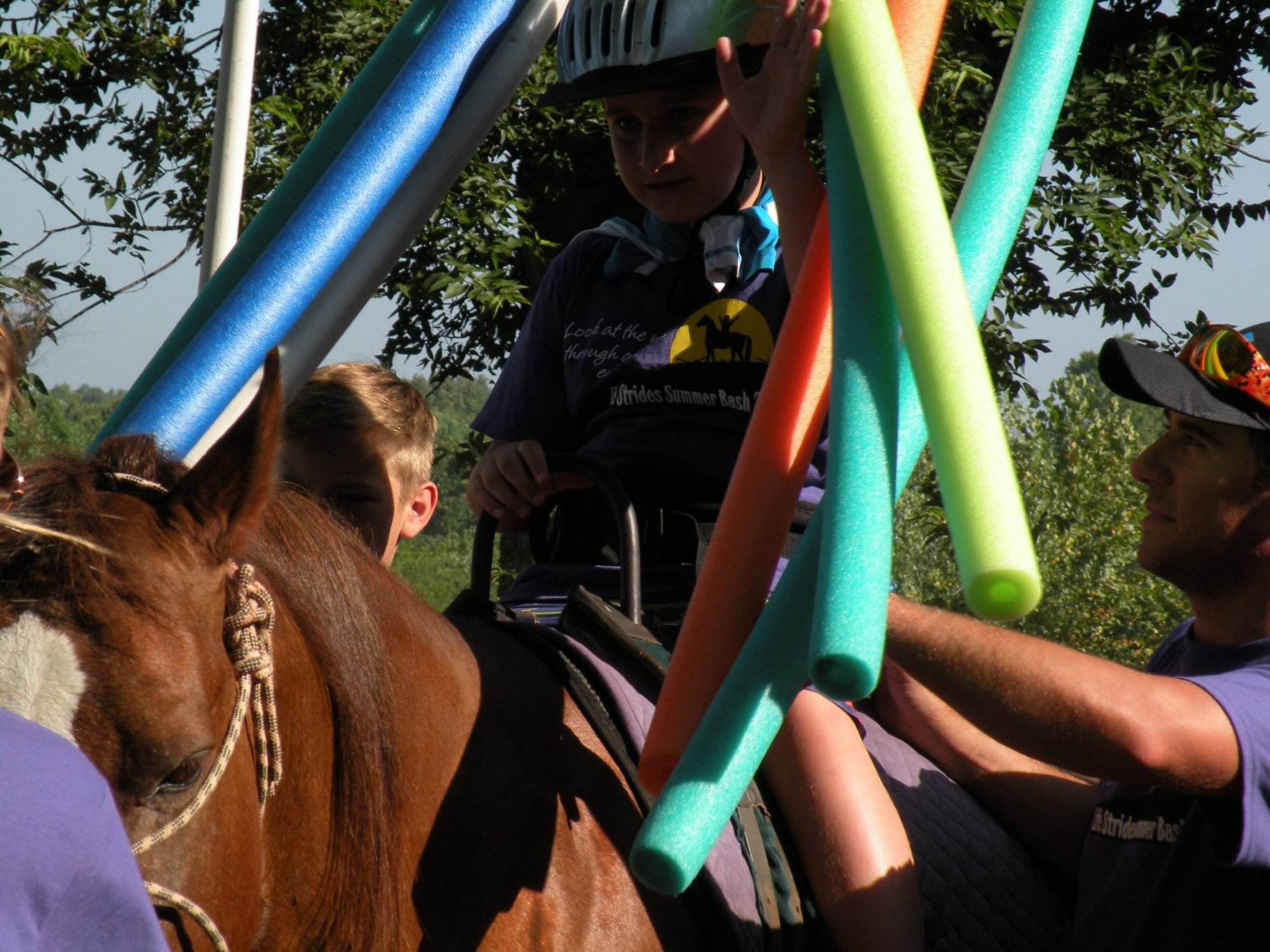Services
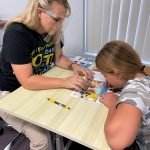
Occupational Therapy
Occupational Therapy is therapy based on engagement in meaningful activities of daily life (such as self-care skills, education, work, or social interaction) especially to enable or encourage participation in such activities despite impairments or limitations in physical or mental functioning.

Physical Therapy
Physical Therapy helps patients reduce pain and preserve, enhance, or restore movement and physical function impaired or threatened by disease, injury, or disability. Physical therapists utilize therapeutic exercise, physical modalities (such as massage and electrotherapy), assistive devices, and provide patient education and training. In many cases physical therapy prevents the need for expensive surgery and often reduces the need for prescription medication and their side effects.
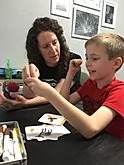
Speech Therapy
Speech Therapy is the treatment of speech defects, disorders, and swallowing difficulties; especially through use of exercises and audio-visual aids that develop new speech habits. This type of therapy can be especially beneficial for children with developmental delays or adults with brain damage.
Hippo Therapy
Equine Facilitated Therapy
McBryde Therapy OPS offers hippotherapy techniques in Occupational Therapy as part of a summer program. Hippotherapy is a therapy technique that uses contact with horses to achieve physical, mental, and behavioral benefits. It reinforces appropriate behavior and encourages each child to put forth maximum effort in therapy. Children and animals are a wonderful combination of energy and spirit.
Pediatric Milestones
Our goal as therapists is to educate, assess and treat patients in our community to improve their success in everyday life. Developmental milestones progress through all years of childhood. Here is an overview through the eyes of our therapists of some of the important milestones up to one year of age.
Birth to 3 months:
• Lifts head and truck during tummy time
• Makes eye contact
• Begins coos, goos and smiling
• Swipes/bats at toys
• Turns head from side to side while on back
• Dependent on Caregiver
4-6 months:
• Rolling stomach to back
• Attempts to hold bottle
• Begins to take baby food or rice cereal from a spoon
• Sits momentarily by leaning on hands for support
• Brings hands together at midline
• Reaches and grasps objects
• Bangs and shakes toys
• Begins babbling with p, b, and m sounds
7-9 months:
• Crawls independently
• Pulls to stand on furniture
• Explores toys by pulling, poking and turning
• Holds bottle independently
• Eats a variety of pureed food
• Independently sits upright
• Responds to own name
• Produces 4 sounds in babbling
10 months-1 year:
• Uses pincer grasp to pick up small object
• Puts objects into container
• Uses simple toys correctly with demonstration
• Uses fingers to eat soft foods
• Drinks from a cup
• Begins to cooperate with dressing by holding out arms and feet
• Walk along furniture
• Says one or two words.
• Responds to simple commands
Contact us for any concerns or questions. MTO is here to help!
McBryde Therapy OPS ∙ 870-994-7778 ∙ 2 Tuff St Ash Flat, AR 72513
Additional Services
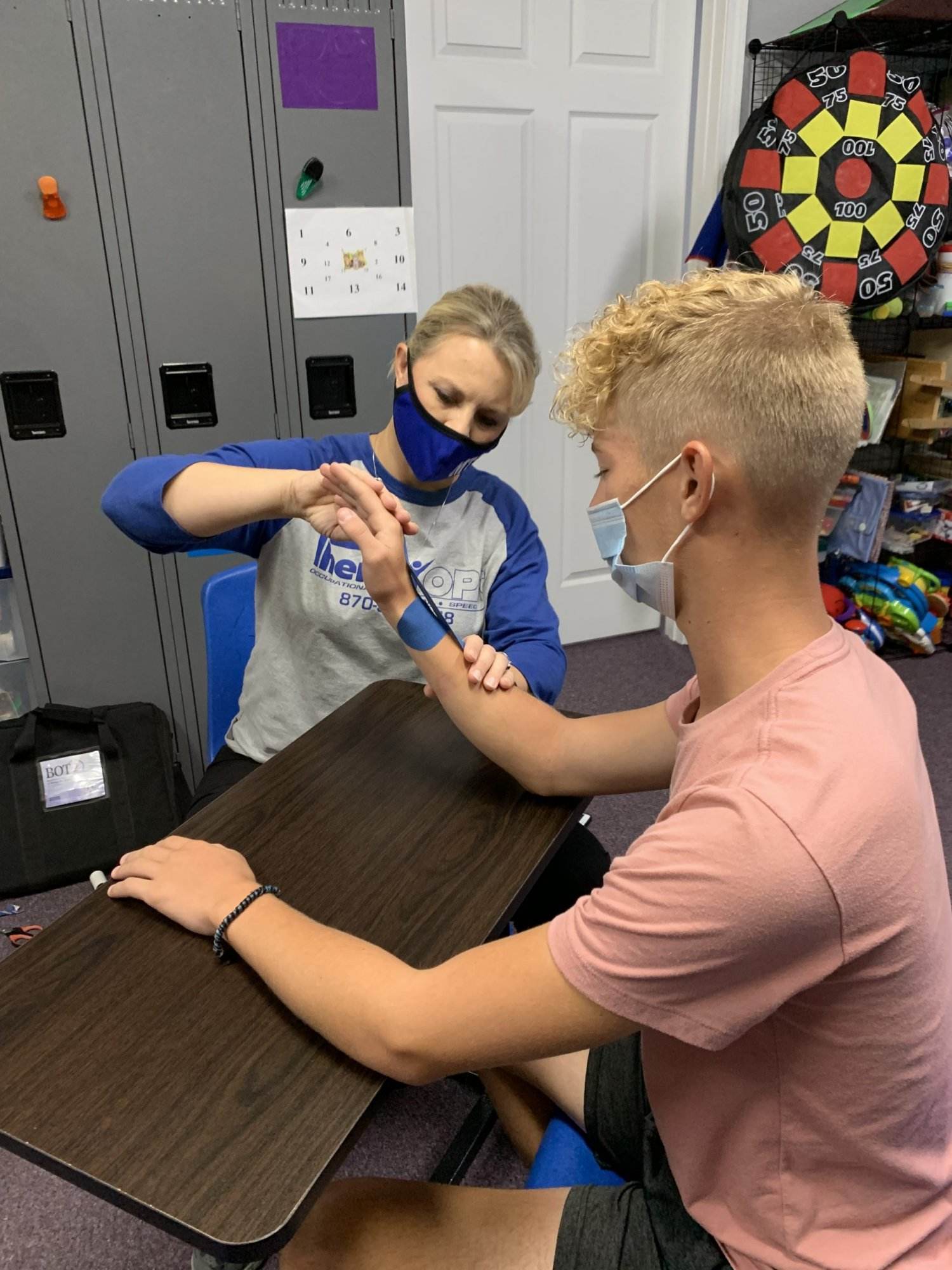
Therapeutic Taping
Therapeutic taping can be used to apply compression to promote recovery, or decompression to relieve pain and swelling. When applied over a stretched muscle, the tape lifts the skin, accelerating blood flow to increase the amount of oxygen that supplies the muscles, which can also reduce fatigue. The technique can also promote lymph drainage to remove toxins produced by the body. These effects can be powerful and greatly beneficial.
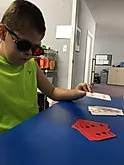
Visual Rehab
The visual system is complex and progressively changing throughout our lifetime. Functional vision depends on combined neurologic interaction of visual stimuli that integrates with postural control, balance, sensorimotor skills, and perception. Visual acuity is commonly assessed by optometrists or other vision specialists. However, visual acuity is only part of the picture. Other visual motor and perceptual skills including tracking, focus, coordination, memory, discrimination, and closure are learned as we grow and develop. Delays in these areas can directly influence many other areas of performance in daily life. Occupational therapy, in collaboration with an optometrist, can target these areas with guided visual activities to enhance visual success and development.
